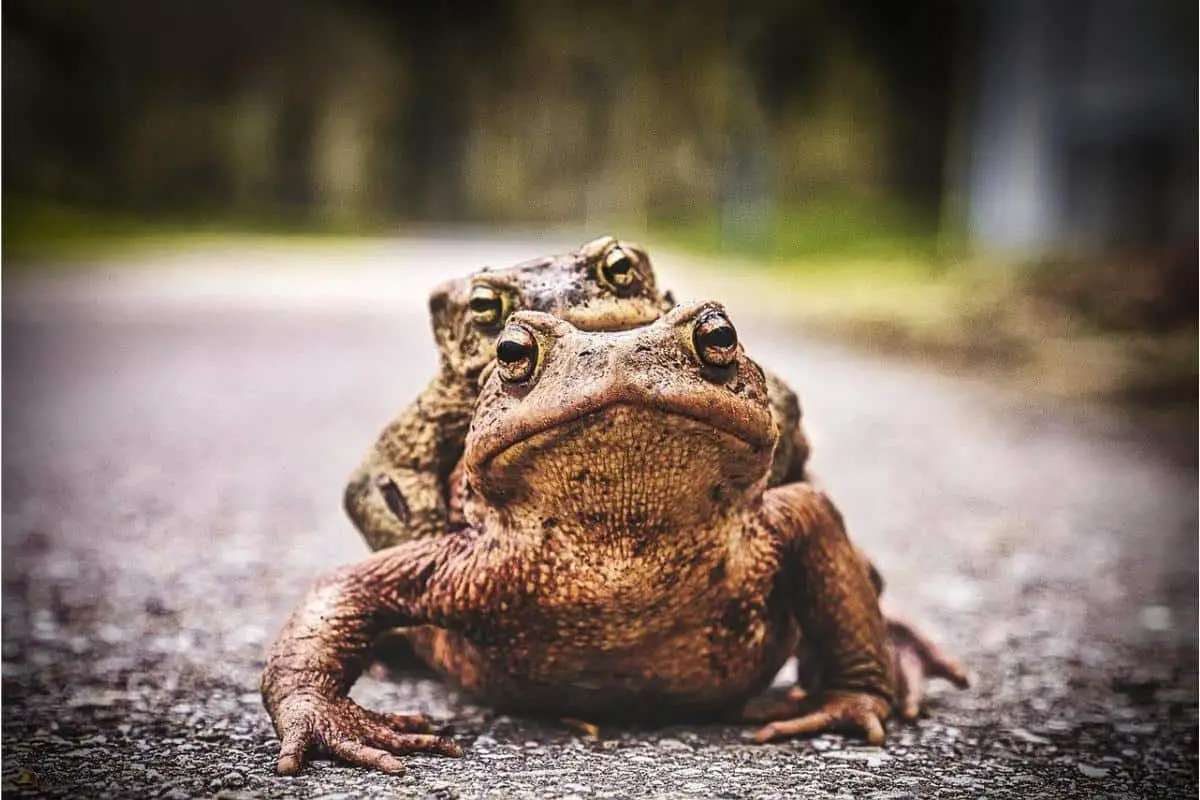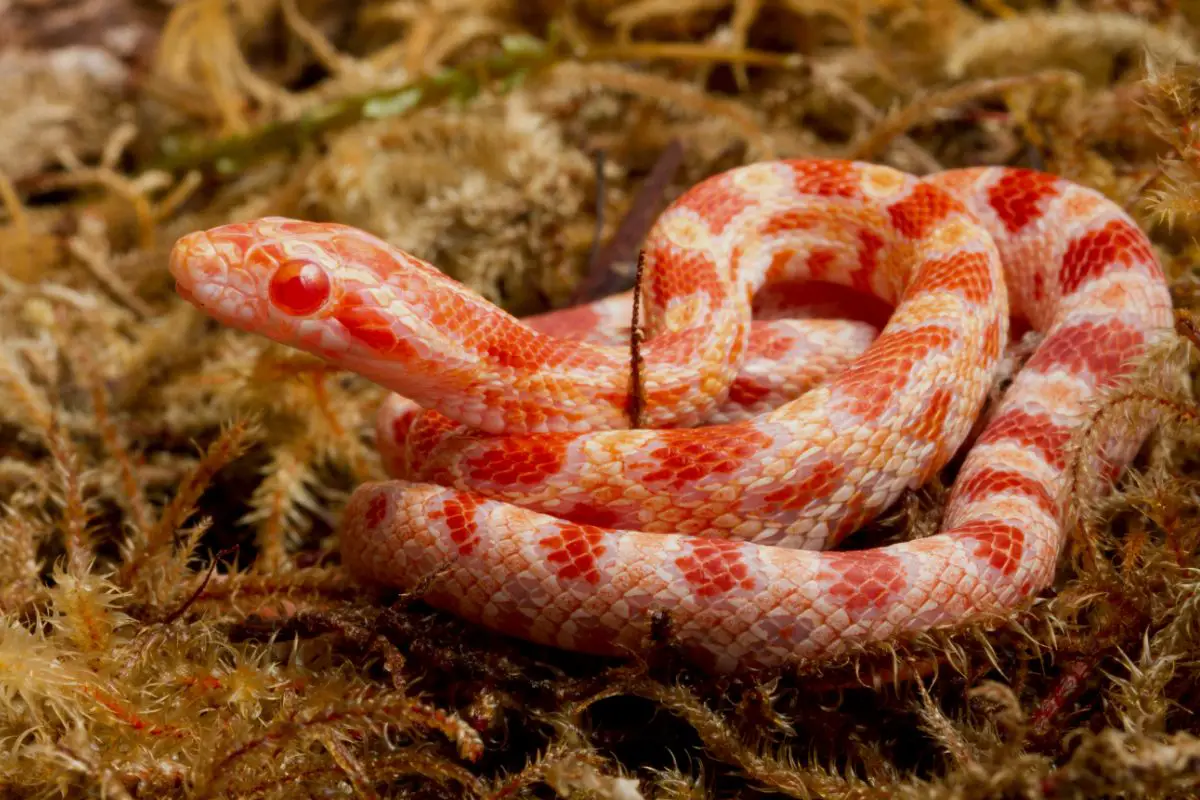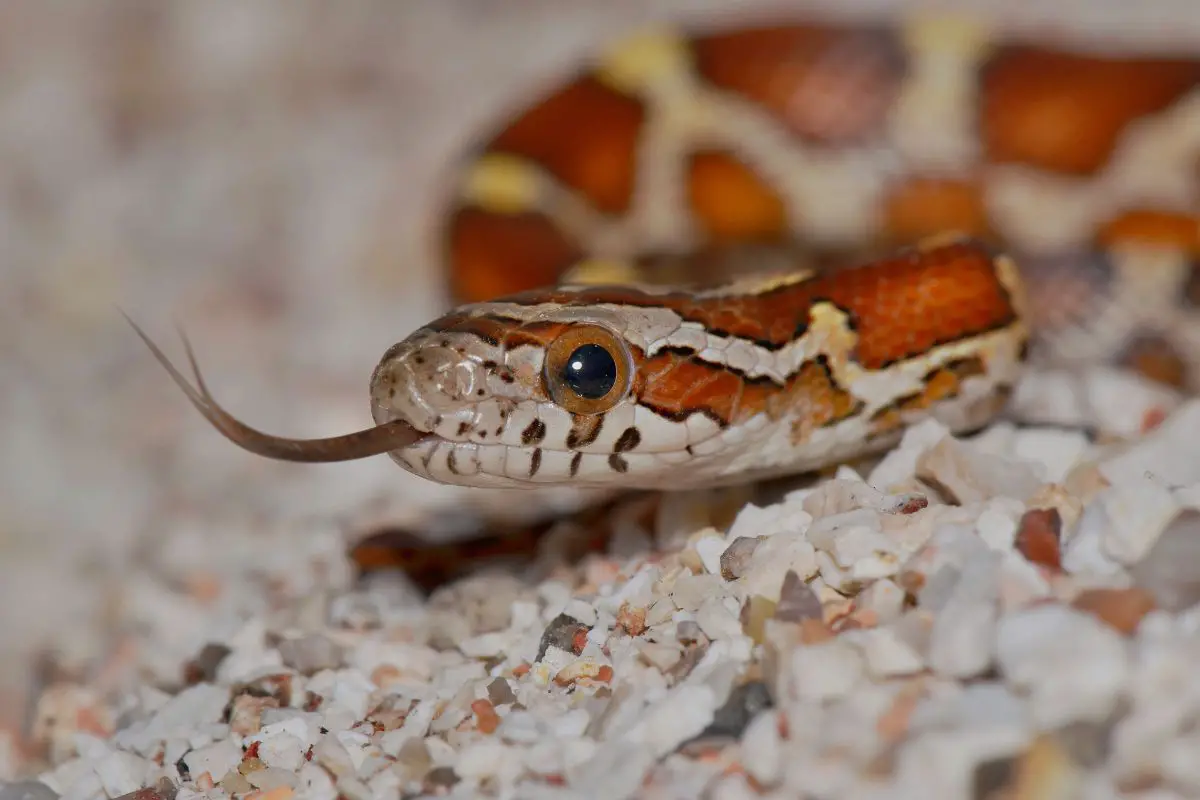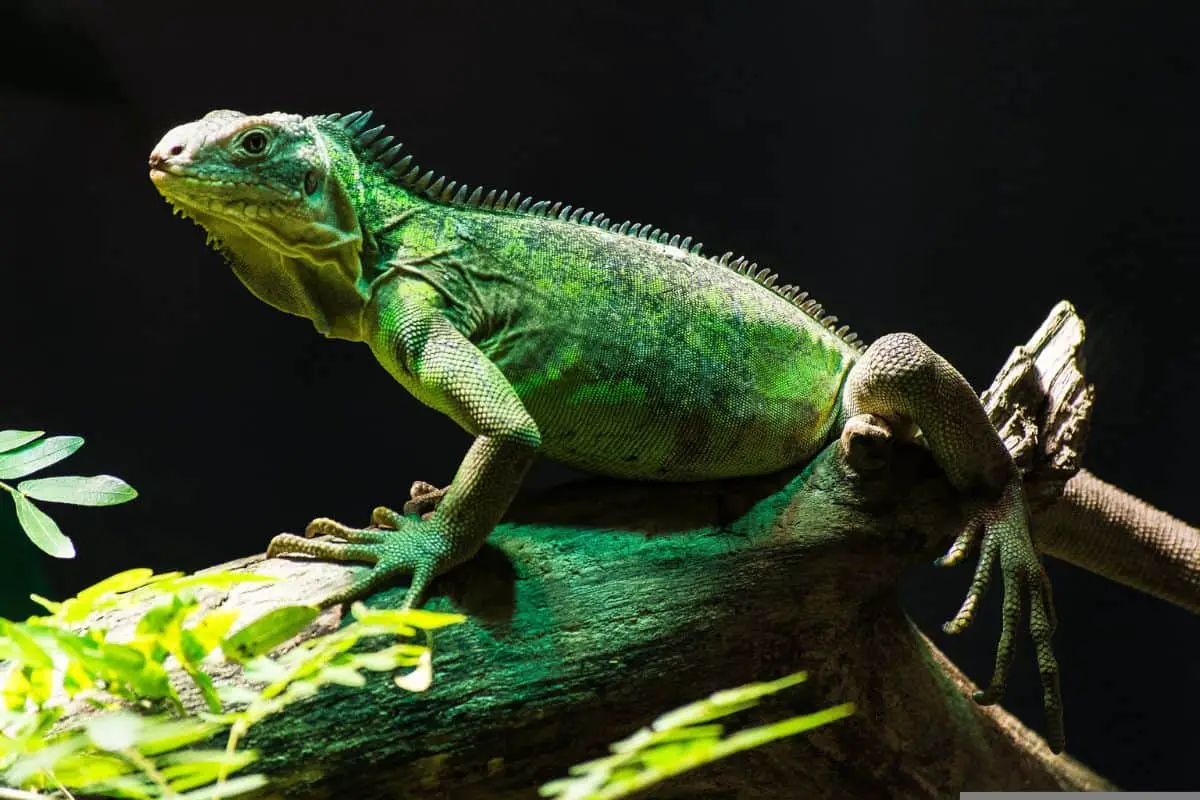Frogs are popular pets and known for their ability to hop around, with species living on land, in trees, or in water. We know they have sophisticated nervous systems that help them respond to their environment to survive and find mates. However, what about the range of emotions they can feel?
The question arises: Can frogs feel happiness? Does hopping around mean they do it happily? Exploring what frogs can feel is crucial to understanding their emotional states. Find out answers to these questions and more to better understand if your pet frog can experience happiness and be cuddly.
Key takeaways
- Frogs can’t feel complex emotions like love or happiness but can feel emotions like stress, fear, and excitement
- You can make your pet frog more uncomfortable by reducing unsafe feelings
- Frogs are not cuddly pets and shouldn’t be held frequently
Can frogs feel happy?

Although pet owners may claim their frogs are happy, there is still more to learn about whether frogs have the capacity to experience feelings and sensations. However, scientists currently assume frogs can feel the following emotions and states: stress, pain, distress, suffering, fear, anxiety, excitement, altruism, and arousal.
Although “happy” is not an emotion listed, you can help frogs be more comfortable by reducing their experience of emotions such as stress, fear, and anxiety.
Some frog species, such as the African Dwarf Frog, are known to vocalize or sing when they feel safe. Other general signs your frog is healthy and comfortable include:
- Enthusiastic about eating
- Maintains healthy weight
- Clear, bright skin and eyes
- Healthy waste that isn’t runny
Do frogs have feelings?
The question of whether frogs have feelings is a topic that scientists continue to study. While frogs do not exhibit emotions in the same way mammals do, research suggests that they possess a range of complex behaviors and responses that indicate a level of sensory perception.
Frogs have well-developed nervous systems that enable them to respond to their environment, avoiding threats and seeking out suitable habitats. Studies have shown that frogs can experience stress responses to adverse conditions, such as changes in temperature, habitat disturbances, or the presence of predators. These stress responses indicate a level of sensitivity to their surroundings.
Do frogs experience love?
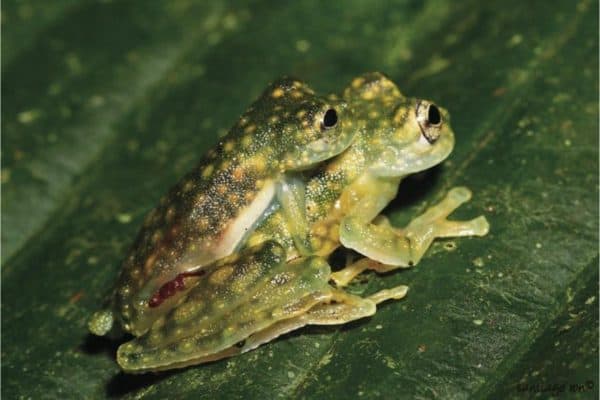
Although frogs can feel excitement and arousal, there is no evidence they can feel love. Frogs don’t have a brain structure called a neocortex that allows complex emotions. Compared to humans and other animals, they’re more limited in their range of emotions and perceptions because of this.
There is no research indicating that frogs feel love towards their mate or offspring, even though they will instinctively protect their young. You really can only tell if your frog is comfortable with you by their relaxed state and absence of fear responses.
Do frogs feel fear?
Yes, frogs can feel fear. However, it is more of a reflexive reaction to any threat, such as a reaction to jump or escape when a predator approaches them. Studies have found that frogs have sensory receptors in their brain that help them with avoidance learning and protective reactions.
This means they can take action to seek safety and avoid pain. Frogs can also produce a range of sounds to indicate whether they are fearful, in pain, or excited.
Do frogs recognize their owners?
Frogs will not recognize you as their owner since they don’t have the cognitive ability to understand concepts like ownership in the human-pet relationship. However, they can learn to recognize you as someone who brings them food. Each time you feed your frog, they will more strongly associate you with food.
Some frog species might be able to learn to recognize your voice. Studies on voice recognition in frogs have found that species such as the North American bullfrog can learn to recognize the voices of neighboring frogs near their territory.
Is it ok to pick up a frog?
In general, most frog species don’t like to be held and aren’t considered cuddly pets. They are sensitive and can absorb any substances on your hand through their skin, including bacteria that could harm your frog. They might also transfer bacteria, such as salmonella, to you.
When you pick up and remove your frog from their environment, they can also feel stressed. If they react out of fear by jumping out of your hands, they can injure themselves, depending on how they land. If you hold them tighter to prevent their escape, you can also injure them accidentally. Some species are also jumpier than others, such as the Borneo-eared frog.
Do any frogs like to be held?
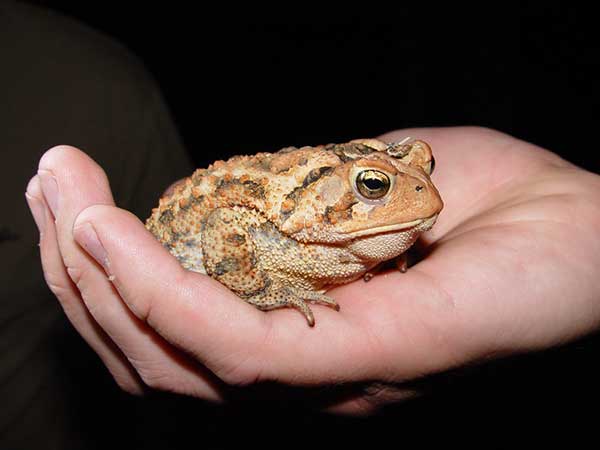
Depending on the frog species, you can handle some gently and infrequently. For example, the White tree frog can tolerate gentle handling and the red-eyed tree frog can be handled for 5 to 10 minutes once a week or so. However, in general, you should avoid handling any pet frogs often and limit moving them from their environment only for necessary cage cleaning.
Conclusion
Frogs can’t feel complex emotions, such as happiness and love, the same way that humans do. However, they can feel certain emotions that help them survive and repopulate in the wild, including fear, excitement, and arousal.
Although they won’t feel gratitude for an owner when you feed them, frogs do have the ability to associate you with someone who brings food. Just don’t expect a pet frog to be cuddly and enjoy frequent holding!
